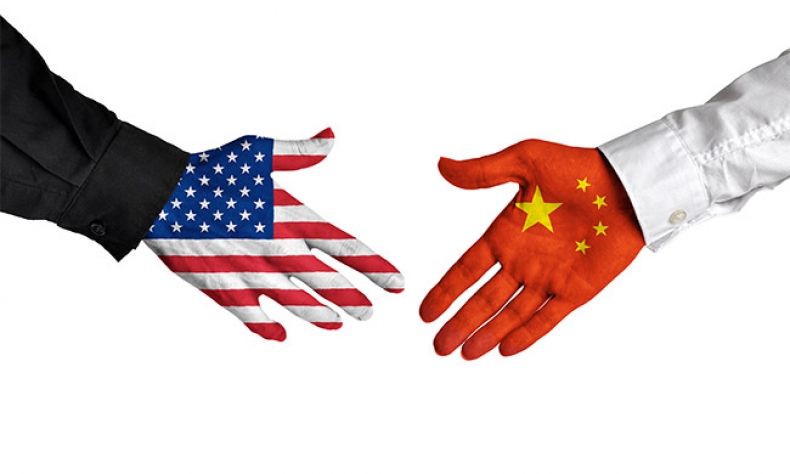
Proper Approach to Trade Disputes
Countervailing measures are aimed to calibrate the prices of imported goods to a fair level of competition, rather than blocking imports from entering China. U.S. companies should be confident that they will never be prevented from exporting goods to China at reasonable prices based on fair play.
China’s Ministry of Commerce (MOFCOM) launched an anti-subsidy investigation into imported polyphenylene ether (PPE), or polyphenylene oxide, on August 14. This probe comes at a time when negative feelings are surging against the enforcement of agreements from the first round of trade talks signed between China and the U.S. in January, while speculation abounds across the globe on whether the two countries will conduct a second round of talks. MOFCOM’s decision is being interpreted by some U.S. politicians as China’s response to U.S. aggression.
But in reality, the decision has nothing to do with China-U.S. trade talks. Anti-dumping and countervailing investigations have been taking place between the two countries for two decades, with the investigations launched by the U.S. against China far outnumbering those carried out by China. The countervailing investigation into PPE imported from the U.S. is just one of many such actions.
MOFCOM’s countervailing probe actually shows China’s strict adherence to the international trade dispute settlement mechanism. Against the backdrop of globalization, trade disputes are commonplace. To solve disputes under international rules is an efficient route to reach mutual understanding and settlement.
Moreover, it is MOFCOM’s obligation to launch a probe at the request of domestic companies. PPE is a polymer with good heat resistance, dimensional stability and mechanical properties, used in the photovoltaic, electronics and automobile industries. China’s demand for PPE has continually grown in recent years, up from 110,100 tons in 2017 to 143,900 tons in 2019.
However, given that domestic production of PPE inched up from 79,600 tons in 2017 to only 103,300 tons in 2019, it is impossible to meet the demand. So the price of domestic PPE was expected to rise. However, the price on the Chinese market fell from 100 yuan/ton ($14.45/ton) in 2017 to 84 yuan/ton ($12.14/ton) in 2018 to 64 yuan ($9.25) in 2019.
What is behind this decline? Is it that prices of PPE products are flat on the international market? On the contrary, PPE prices jumped by 41.17 percent on the international market from 2017 to 2019.
The culprit for declining PPE prices in China is the U.S., as it floods the Chinese market with PPE. According to statistics from MOFCOM, imported PPE from the U.S. climbed from 17,000 tons in 2017 to 21,000 tons in 2019, up 26.5 percent. Moreover, it is sold cheaper than China’s domestic PPE, stabilizing the market share of U.S. PPE in China to about 15 percent, a proportion that can sway PPE prices on the Chinese market.
Given the relatively small supply of PPE in China, there is no fierce competition on the market, that is, PPE products can sell well without big price cuts. Thus, there is only one explanation for these low prices: U.S. PPE companies mean to edge out their Chinese counterparts by dumping inexpensive PPE, and then eat away at the Chinese PPE market. They have managed to do this thanks to subsidies from the U.S. Government in the form of favorable policies and tax relief, among other things.
Findings by Chinese companies and their legal advisors reveal that subsidies that may benefit U.S. PPE companies number 145, with 20 coming from the federal government and 125 from local governments. PPE companies save huge costs through various U.S. tax relief mechanisms. The U.S. Government forgoes or doesn’t collect revenue that is otherwise due by offering favorable taxation policies, which goes against Clause 2 of Article 3 of China’s Anti-Subsidy Regulations.
The U.S. PPE dumping has predictably led to a surge in inventory for Chinese PPE producers, which has led to soured business operations and dwindling finance avenues for them. If China doesn’t respond with countervailing measures, Chinese companies will be dealt an even heavier blow. In response to this danger, Chinese PPE producers requested that MOFCOM launch countervailing investigations into imported U.S. PPE, which may take up till August 14, 2021.
The review was launched to remove impediments to China’s domestic PPE industry by correcting unfair competition resulting from subsidized PPE originating from the U.S.
Still at its infancy in China and many other countries, the PPE industry requires a healthy environment for development, but the dumping of imports poisons the environment.
China has informed relevant U.S. companies about its countervailing investigation, and has welcomed their providing materials if they don’t agree with the MOFCOM decision. China will not restrict imports by wielding the weapon of high tariffs or resorting to the excuse of national security risk.
Countervailing measures are aimed to calibrate the prices of imported goods to a fair level of competition, rather than blocking imports from entering China. U.S. companies should be confident that they will never be prevented from exporting goods to China at reasonable prices based on fair play.
 Facebook
Facebook
 Twitter
Twitter
 Linkedin
Linkedin
 Google +
Google +










